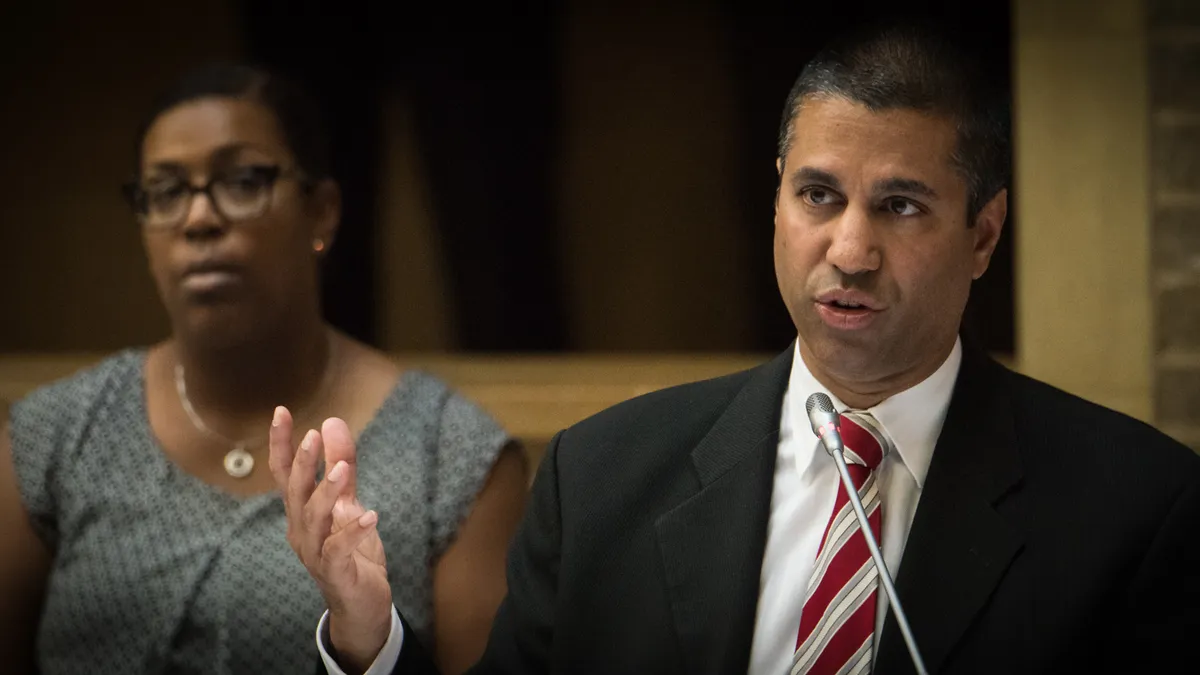Dive Brief:
- Regulatory bodies are turning a keener eye to artificial intelligence, which is set to disrupt domains across business and civil society in the coming years. On Thursday, the European Union announced an expert group on AI, composed of 52 members from across academia, business and the public. The group will advise on challenges and opportunities during the legislative process and draft the next iteration of European AI ethics guidelines and support the European AI Alliance, also launched Thursday.
- In the United States, the Federal Communications Commission is looking into artificial intelligence and machine learning, among other nascent technologies, according to Chairman Ajit Pai, speaking at an Axios event in Washington Thursday. By the end of the year, Pai hopes to kick off a series of forums with experts discussing new technologies with an event on AI and ML.
- AI and ML are poised to disrupt consumers, the communications market and businesses that operate in that market, according to Pai. For example, the technology could help companies use spectrum more intelligently.
Dive Insight:
While AI and ML may not seem like the first priority for a federal agency that has been juggling changes to net neutrality rules and mergers of broadband and content companies, the FCC's interest demonstrates the widespread impacts the technologies will have on the economy.
AI has already begun a swift march through the business and consumer worlds, prompting legislative bodies to also convene expert hearings to assess its implications and plan for its regulatory and legislative future. Many experts agree on a light-handed regulatory touch, so as not to stifle innovation and adoption, as well as open data policies and R&D investment from the government.
Many experts fear the effects of AI in widening the gap between the "haves" and "have-nots" as automation and AI take jobs away from low-skilled workers with repetitive or routine responsibilities. While some friction in the transition to the fourth industrial revolution will inevitably occur, getting ahead of damaging effects on workforces is top of mind for politicians and regulators subject to electoral pressures.
But divides created by AI may only reinforce technology disparities contouring the American landscape.
The existing digital divide needs to be mitigated between rural areas — where access to broadband and internet is lagging and human capital is "sitting on the shelf" — and urban areas with sufficient infrastructure and 4G access, according to Pai. If regulators can create the right ecosystem, then a business case to develop in overlooked areas could help narrow the gap.
As AI takes deeper root, creating a business case for employers to implement retraining or relocation for workers displaced by machines and algorithms may become equally pertinent.
Policymakers and regulators need to play the long game as they establish rules and ethical standards for AI and ML that could shape the space for decades to come. After all, many areas of the U.S. technology market are still governed by laws written just as email was starting to take off.
FCC Chair @AjitPaiFCC tells Axios’ @khart that the central problem with internet policy in the U.S. is that there is no business incentive for internet providers to serve rural areas. #axios360 pic.twitter.com/oOrWc4psoA
— Axios (@axios) June 14, 2018












